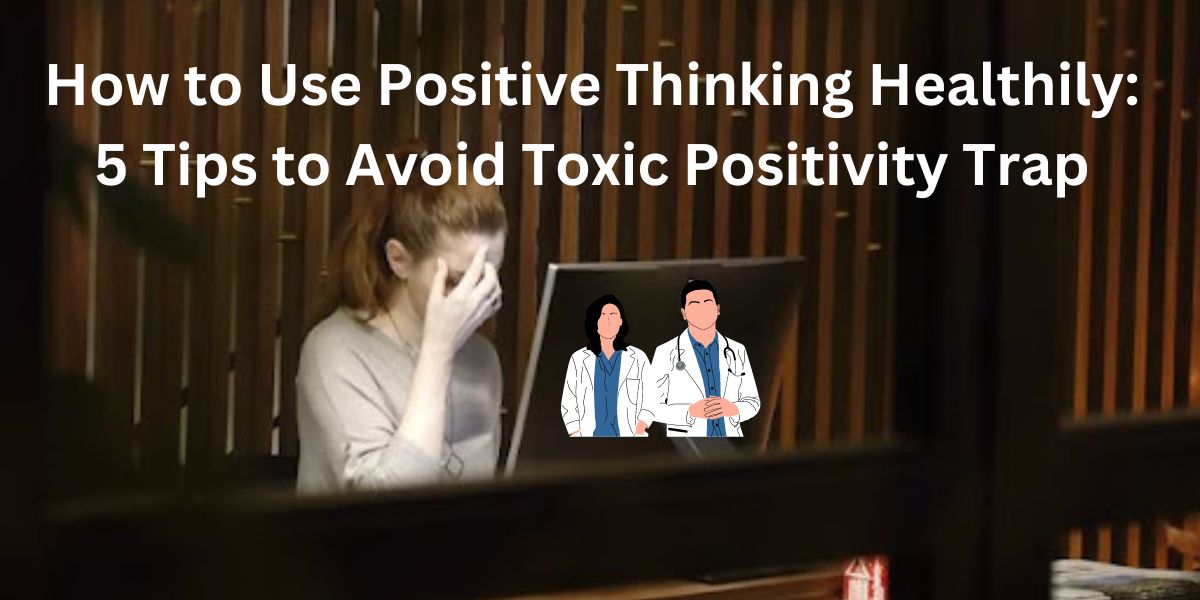Positive thinking is a powerful tool for promoting resilience, motivation, and well-being. A positive attitude allows us to approach challenges optimistically and maintain a hopeful outlook, especially in today’s society full of noise.
But what if positivity goes too extreme? That’s when positivity becomes toxic. Experiencing toxic positivity can harm our mental and emotional well-being, as it denies the reality of our feelings and prevents us from effectively addressing our challenges.
If you’ve struggled through a judgmental environment, it’s necessary to identify whether the people surrounding you spread toxic positivity. To understand more about this topic, we’ve curated the essentials and the five tips to help you break free from the toxic positivity trap.
What is Toxic Positivity?
While it’s necessary to maintain a positive mindset to navigate through life’s challenges and maintain our well-being, toxic positivity takes it to an unhealthy extreme. The term toxic positivity means insisting on relentless positivity, disregarding or suppressing negative emotions or experiences.
This issue underlines the emotion of always being happy and optimistic, no matter what. People with toxic positivity brush off negative feelings or problems as if they don’t matter. Meanwhile, life has ups and downs, and sometimes it’s normal to feel sad, angry, or frustrated.
Moreover, acknowledging and processing negative emotions is crucial for our emotional growth and mental state. Ignoring or invalidating them can lead to emotional suppression and an inability to address underlying issues.
Worse still, this habit prevents you from expressing those emotions and pressures you to fake a constant smile. Then, what will happen if we maintain toxic positivity for an extended time? Here’s a list you should be aware of:
- Provoke emotional suppression resulting in unresolved emotional issues and increased stress.
- Promote invalidating experiences and challenges leading to frustration, loneliness, and a sense of not being understood.
- Create unrealistic expectations due to the relentless pursuit of positivity.
- Lack of emotional growth
- Suppressed support-seeking
- Disconnection from our authentic selves.
How to Recognize Toxic Positivity
Toxic positivity can happen anywhere, from family to the workplace. To help you mitigate this curse in disguise, we listed some toxic positivity traits you should avoid. Let’s take a look at the brief explanation below.
Dismissing or Trivializing Emotions
When a bad thing happens, feeling sad and disappointed is normal. However, you must be careful when someone downplays or brushes off your negative emotions. If they consistently prompt you to feel positive on your worst days, they may invalidate your feelings.
Blaming the Individual
Toxic positivity tends to shift the blame onto the person experiencing negative emotions. They may suggest that you’re not trying hard enough to be positive or that your negative experiences are entirely your fault.
Overemphasis on Positivity without Addressing Problems
Toxic positivity can be present when there is a constant emphasis on being positive, even in the face of significant challenges or unresolved issues. If a company repeatedly promotes messages like “Stay positive, no matter what” without addressing underlying problems can create a culture of denial and avoidance.
Minimizing Work-life Balance Challenges:
Statements like “Just be grateful you have a job” or “You should always be happy to work hard” often overlook the significance of taking time for yourself, perhaps by unwinding at the best sauna in Sydney, and setting essential boundaries for a balanced life.
In some workplaces, there may be a culture that punishes or stigmatizes negative emotions. Employees may feel pressured always to appear happy and optimistic, fearing repercussions if they express their true feelings.
5 Tips to Avoid the Toxic Positivity Trap
To help you prevent toxic positivity from navigating your life, here are the five essential tips you should consider. Let’s take a closer look at each point.
#1. Embrace Emotional Authenticity
Learn to embrace emotional authenticity. Let yourself experience and experience all ranges of emotions. You can start by understanding and realizing that positive and negative emotions affect your well-being and mental state.
If you experience a bad day, take a moment to devour the sadness. Allow the disappointment to go through you until you feel enough. At one point, you will get back stronger to fight the upcoming challenges.
However, if you find yourself grieving too long, you should call for help. Don’t bottle up your problems alone; seek help from your supportive circle or a professional service. Professional mental health practitioners, such as those at New Vision, will navigate and motivate you to overcome your sadness properly.
#2. Practice self-compassion
Self-compassion is extending kindness, understanding, and care toward oneself, especially in moments of difficulty, failure, or pain. It involves treating yourself with the same compassion and empathy you would offer to a close friend or loved one facing a similar situation.
Understand your suffering, pain, or challenging emotions, and notice when you’re self-critical or judgmental. You can engage in activities that soothe your emotions, such as taking a warm bath, meditating, and embracing a creative mind.
You can foster a creative mind through many activities, such as painting and spending time in nature. We recommend reading The Creative Act: A Way of Being by Rick Rubin to explore your creativity. Or watch the animated summary of the book by Lead Learn Leap below.
Moreover, consider the power of self-talk and be mindful of the way you speak to yourself. Replace self-critical or harsh language with words of understanding, encouragement, and self-compassion.
#3. Validate Your Feelings
Validating your feelings means acknowledging and accepting your emotions as valid and worthy of recognition. You can take a moment to pause and notice your feelings. Tune in to your emotions and allow yourself to identify them without judgment.
Embrace a stance of self-acceptance and self-compassion. Remind yourself that it’s okay to feel the way you do. Validate your emotions by acknowledging that they are a natural and normal part of being human.
Validating your feelings promotes emotional well-being. It sets a foundation for healthier relationships with others. When you validate your own emotions, you’re more likely to respect and validate the emotions of others.
#4. Cultivate a Supportive Network
In a toxic positive environment, individuals may feel discouraged or inhibited from seeking support. The pressure to maintain a positive facade can make them reluctant to reach out for help or share their struggles with others.
Thus, building a support network is crucial for navigating the challenges of toxic positivity. Surrounding yourself with understanding and empathetic individuals can provide comfort, validation, and guidance.
Seek out friends, family members, or colleagues who can offer a safe space for you to express your true feelings. They shouldn’t express judgment or pressure to maintain constant positivity.
You can also reach out to health experts to navigate through difficulties. Having a support network helps you feel understood and accepted and provides opportunities for shared experiences, learning, and personal growth.
#5. Encourage Open and Honest Communication
Fostering a culture of open dialogue involves providing a space where individuals can comfortably express their authentic emotions and challenges. Honest communication also prevents the fear of being invalidated or dismissed.
You can practice active listening to others without judgment, providing a safe space for vulnerability, and responding with empathy and support. Also, create opportunities for individuals to share their struggles, seek advice, identify solutions, and offer mutual support.
Takeaway
Incorporating positive thinking into your life can be empowering, but remember to do so in a healthy and balanced way. Learn to accept emotions when experiencing difficult and painful moments to grow stronger.
Moreover, it’s crucial to understand the meaning of toxic positivity and how to recognize it. Identifying toxic surroundings helps you avoid them and focus on your authentic self.
The above discussions can guide you to fight against toxic positivity. You can seek support, especially from your loved ones and health practitioners, to find solutions. Give yourself time to go through difficult times and find a way to nurture your well-being to grow.














